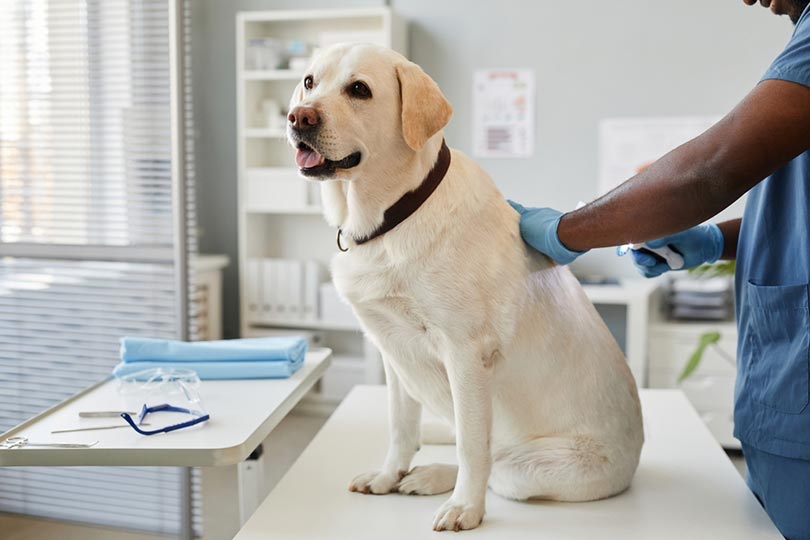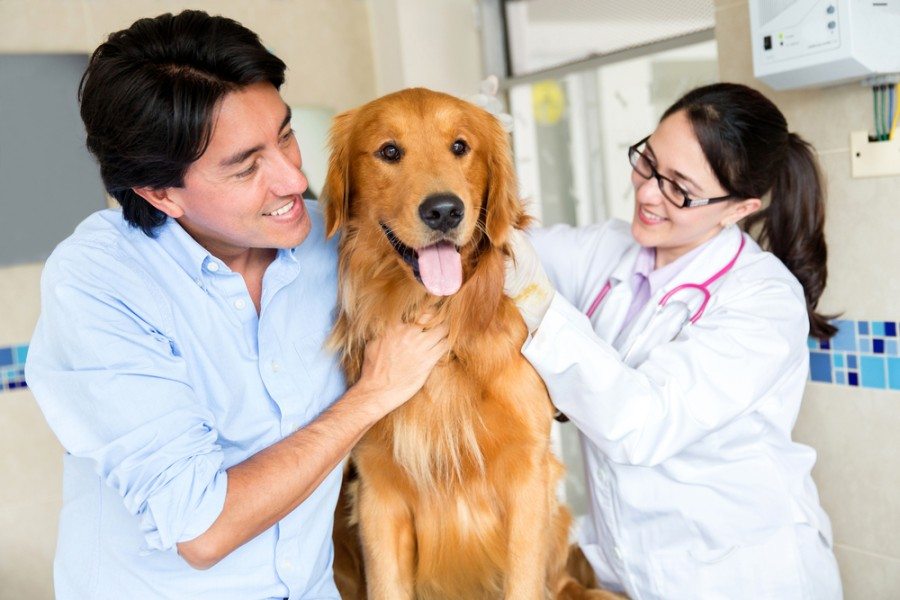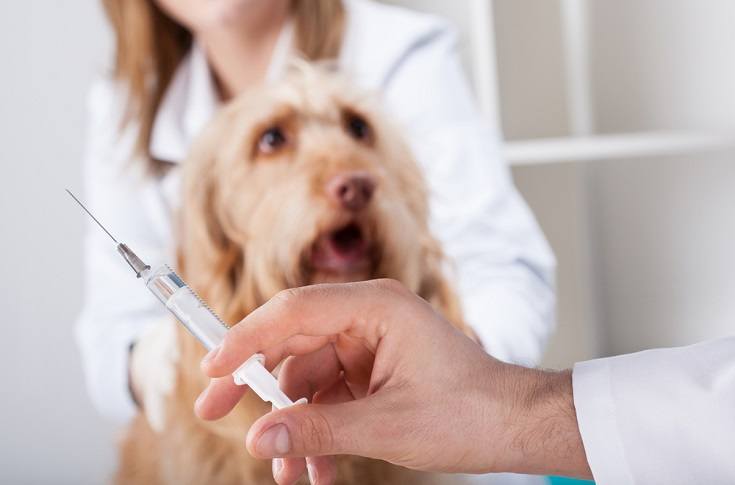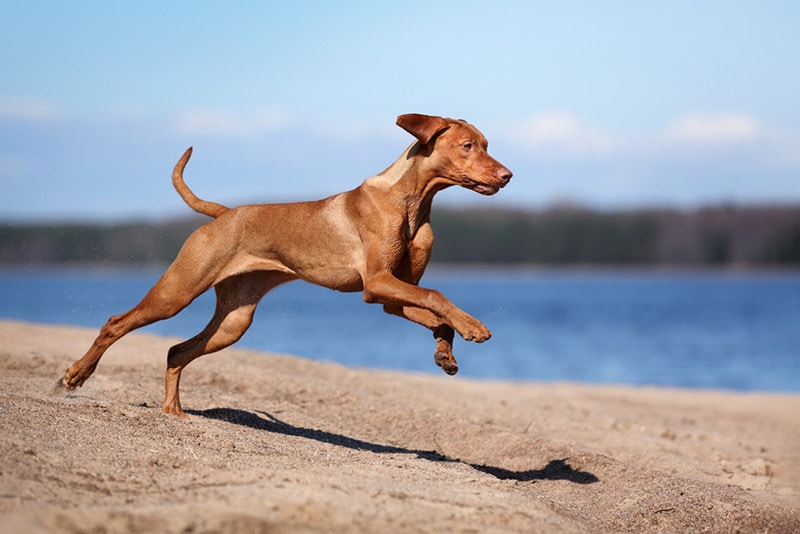How Often Does a Dog Need Rabies Shots?
Updated on

Rabies vaccinations are important for dogs because the disease is almost undetectable until it’s too late and a dog can pass the disease to other animals and people, too! Unfortunately, rabies is almost always deadly, and the disease is not treatable1. Therefore, laws are in place throughout the United States that require the vaccination of dogs against rabies. Rabies-free Hawaii requires rabies vaccinations and proof of negative rabies tests (and even a type of quarantine2) before any dog is allowed to enter the state.
While most states only require the vaccine, rabies vaccination laws vary from state to state and county to county. There are a couple of policies that seem to have been adopted across the board, though, when it comes to an initial and second vaccination. Here is what you should know about how often a dog should get a rabies vaccination.
The First and Second Rabies Shots
Most veterinarians give puppies their first rabies vaccination shot at about 16 weeks of age but never before 3 months of age. The second vaccination is typically administered 1 year afterward. This provides initial protection for puppies as they age and enter their most active stage of exploring outside environments, where it’s most probable that they could become infected with rabies.
Your veterinarian should schedule the second vaccine administration when you show up to have the first vaccination given. If you obtain your dog after they have received their first rabies vaccination, it is important to get their vaccine paperwork so you can determine when to schedule the next vaccine. There are different rules in each state regarding rabies vaccinations. So if you aren’t sure based on the data provided, your vet can help you determine what needs to be done and when.

Booster Shots Throughout a Dog’s Lifetime
The first and second shots are not the only ones that your dog will get throughout their life to stay protected from rabies. Depending on the type of vaccine used and the laws in your area, your dog may be required to get a rabies vaccination every 1 to 3 years after their initial doses. The protection that the vaccines provide does not last a lifetime. A dog’s immune system must be reminded of how to fight off the rabies virus at regular intervals to ensure lifelong protection, which is why regular vaccines are required.
The Importance of Rabies Vaccinations for Dogs
Unfortunately, rabies is deadly, and it cannot be detected until clinical signs have already begun to manifest, at which point it is too late for treatment. It’s also extremely transmissible. All it takes is a bite from an infected animal, and the dog or person bitten can become infected. Therefore, it is essential to ensure that you follow the vaccination schedule for your dog, not only for their health but also for yours.

Possible Side Effects of the Rabies Vaccination for Dogs
It is important to understand that side effects might occur after your dog gets a rabies vaccination. Most are mild and nothing to worry about, but a few could be detrimental. Here are the signs of side effects to look for.
Mild Temporary Signs:
- Lethargy
- Loss of appetite
- Mild swelling at the injection site
Serious Signs That Require Immediate Vet Care:
- Hives
- Respiratory problems
- Cardiac arrest
If you feel unsure about any symptoms that your dog is showing or if you are positive that serious symptoms are present, it’s important to visit your veterinarian or an emergency vet center immediately. It’s always a good idea to stick around the vet’s office for an hour or so after a rabies vaccine, if possible, just in case any serious side effects develop.
Final Thoughts
There are many reasons to make sure our dog gets their rabies vaccinations, one of the most important being the public health implications. It is also legally required in most cases. There does exist the possibility of a vaccine reaction, but in most cases the vaccines are well-tolerated. Side effects can be dealt with as needed. Work with a veterinarian to determine when and how often your dog should receive rabies vaccinations.
Featured Image Credit: SeventyFour, Shutterstock












